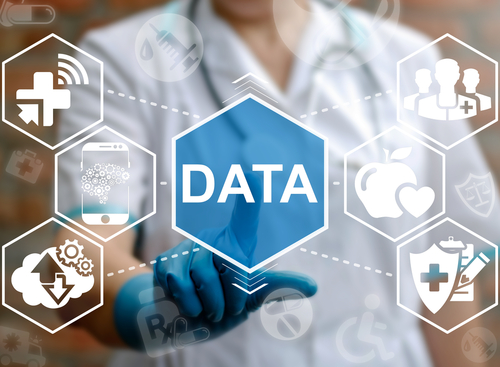[SPONSORED POST] With the transformation of medicine from analog to digital, plus the rise of new data-generating devices for health tracking and genomic information, we can look forward to a new world in which virtually every aspect of a patient’s medical history can be communicated, stored, and manipulated. For each patient, this huge body of data represents a sort of digital twin, a treasure trove of useful medical information and insights that could become invaluable in developing patient treatments in the future.
New Streamlined Statistical Method Provides Improved Pattern Detection and Risk Prediction for Disease
Researchers from the Renaissance Computing Institute (RENCI) at UNC-Chapel Hill, Perspectrix, the UNC School of Medicine, and the WVU Rockefeller Neuroscience Institute have collaborated to develop a new method for finding patterns in data which arguably surpasses the performance of a generally accepted “gold standard.”
AI and Robotics Uncover Hidden Signatures of Parkinson’s Disease
A study published in Nature Communications unveils a new platform for discovering cellular signatures of disease that integrates robotic systems for studying patient cells with artificial intelligence methods for image analysis. Using their automated cell culture platform, scientists at the NYSCF Research Institute collaborated with Google Research to successfully identify new cellular hallmarks of Parkinson’s disease by creating and profiling over a million images of skin cells from a cohort of 91 patients and healthy controls.
Study: Big Data Saves Lives, And Patient Safeguards Are Needed
The use of big data to address the opioid epidemic in Massachusetts poses ethical concerns that could undermine its benefits without clear governance guidelines that protect and respect patients and society, a University of Massachusetts Amherst study concludes. In research published in the open-access journal BMC Medical Ethics, Elizabeth Evans, associate professor in the School of Public Health and Health Sciences, sought to identify concerns and develop recommendations for the ethical handling of opioid use disorder (OUD) information stored in the Public Health Data Warehouse (PHD).
Alzheimer’s Disease Data Initiative launches new AD Workbench to foster greater global research innovation and accelerate breakthroughs in Alzheimer’s disease and related dementias
Launching is the Alzheimer’s Disease Data Initiative (ADDI) and its Alzheimer’s disease (AD) Workbench, a cloud-based platform for scientists to accelerate discoveries and innovations for AD and related dementias. ADDI is a new global effort that aims to advance AD innovation by connecting researchers with the data needed to generate insights and inform the development of improved treatments and diagnostic tools.
How Big Data Is Revolutionizing Sleep Science and Health
In this contributed article, IT and digital marketing specialist Natasha Lane, discusses how big data has become a big part of sleep science, and it is helping make big strides in the right direction. There’s no doubt that this relationship will become even stronger in the future as biomedical big data becomes more homogenized and handled more efficiently and carefully.
Vaccines Are Being Created By AI: Here’s How
In this contributed article, tech blogger Caleb Danziger discusses how medical researchers have begun using AI in a bid to reduce long drug development times and prevent costly failures. Now, these efforts are beginning to produce real results. A team of medical researchers from Australia’s Flinders University have designed an AI that has, for the first time, created a drug entirely by itself.
Proscia Launches AI-Powered Digital Pathology Solution for Dermatopathology
Proscia, a leading provider of digital pathology software, released DermAI™, the first in its series of AI applications that advance the practice of pathology. A module on Proscia’s Concentriq™ platform, DermAI leverages deep learning to pre-screen and classify skin biopsies to help reduce costly errors and improve laboratory quality and efficiency as the number of […]
MedyMatch Reveals Artificial Intelligence Deep Vision Intracranial Bleed Detection Technology
MedyMatch Technology Ltd., (“MedyMatch”) the deep learning and artificial intelligence company, announced that after several years of extensive research and development, it has achieved a major milestone in the availability, for research, of an artificial intelligence based technology that can help detect the presence of intracranial hemorrhage or brain bleed which can occur in cases of brain trauma and stroke. Subtle bleeds are difficult to detect and if misinterpreted or missed by a physician can lead to serious patient injury and even death.
It’s Time to Redesign Medical Data
In the TEDMED talk below, Thomas Goetz looks at medical data, making a bold call to redesign it and get more insight from it. Your medical chart: it’s hard to access, impossible to read — and full of information that could make you healthier if you just knew how to use it.










